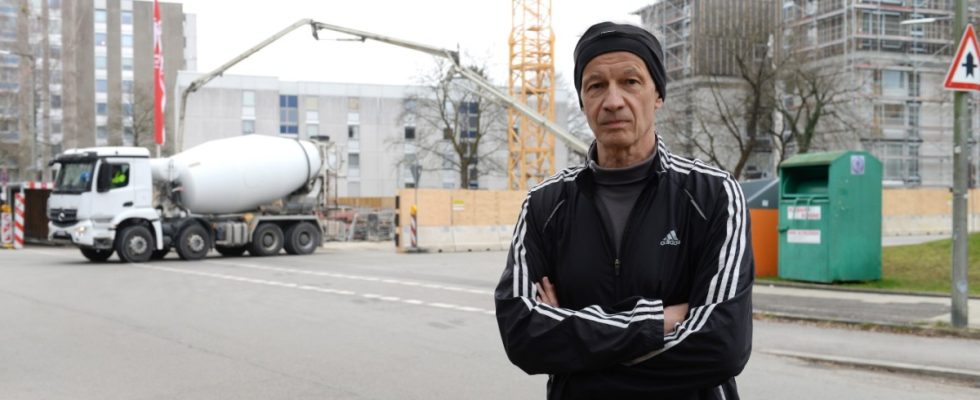Switzerland is omnipresent in Fürstenried. Almost all streets and squares in the district in Munich’s southwest bear the names of cities and cantons in the neighboring country – reminiscent of the district partnership with Bern-Bethlehem, which was built around the same time as Fürstenried. Today people are more interested in federal building law. The term “density stress” is known in connection with immigration issues and settlement projects. The Pro Fürstenried association, which emerged from a citizens’ initiative, believes that this evil must be avoided at all costs in this country. Together with two directly affected residents, he has now filed a popular lawsuit with the Bavarian Constitutional Court. This is directed against the city of Munich and the densification it approved in Fürstenried-West.
In the affected district – Appenzeller Strasse development plan – with its 1,500 apartments, the Bavarian Supply Chamber has already started building a further 660 apartments through extensions, extensions and the construction of high-rise buildings with up to 18 floors. A project that Pro Fürstenried has been protesting against for years, but which the city council still approved by a majority, citing the need for living space.
From the perspective of the “District Association for Quality of Life” this is a scandalous affront. Its chairman Kurt Grünberger even sees fundamental rights violated. In two extreme cases, existing buildings would be so shaded by the planned new buildings that the long-established residents would hardly get any sunlight. And parking spaces were placed in such a way that they amounted to an encroachment on the landscape protection area. In any case, the felling of 184 trees is to be complained about.
In addition, the city has cleverly reduced the parking space key for the planning area, so that upon closer inspection only about a quarter of the previous specifications remain. “They are violating their own regulations,” criticizes Grünberger, “that is unique on this scale and in a certain way a deception.”
As an unpleasant consequence, chaotic traffic conditions in the district are to be expected. Especially since the set maximum distance of 600 meters to the nearest subway station is not adhered to everywhere. On top of that, as part of the redevelopment of the district, a completely intact residential building on Forst-Kasten-Allee would be demolished and some of its older residents would have to move willy-nilly, that entire balconies would also be “sawed away”, that soil sealing would increase and that fire service access would be blocked during the years of construction work only complete the picture of excessive, socially incompatible densification, complains Grünberger. None of this has anything to do with the healthy living conditions that officials always demand.
It is clear to the club’s chairman that Pro Fürstenried’s popular lawsuit is coming up against a solidly formed phalanx of city council, city administration and property developers. “But it is our last chance to defend ourselves against the violation of fundamental rights through excessive densification,” he emphasizes. He sees a major advantage of the popular lawsuit in the fact that, beyond the city of Munich, the Bavarian state parliament and the state government should also take a stand. Pro Fürstenried does not expect a verdict until July at the earliest.
The municipal planning department and the Bavarian Supply Chamber have consistently rejected Pro Fürstenried’s criticism since the conflict began eight years ago. Both sides emphasize that possible traffic problems can be alleviated with a sophisticated mobility concept that includes car sharing as well as bicycle rental. The Bavarian Supply Chamber claims to be making an important contribution to alleviating the housing shortage with the expansion of the district in Fürstenried-West. Company spokespersons assure that urgently needed, affordable rental apartments will be built. At the same time, they reject the assumption that legal distance standards would be undermined or that too many green spaces would be sacrificed. The promise is that tree felling would be compensated for on a one-to-one basis by new planting.
Unlike the Munich city council, the members of Pro Fürstenried are not impressed by such promises. For them it is clear that if their popular lawsuit is not successful, the peace and quality of life in their outskirts will be irrevocably over. Helvetic regulations against “density stress” would then be little consolation to them.

